Services
Adaptive Physical Education Teacher
Our Adaptive Physical Education Teacher (ADPE) provides developmentally appropriate physical education at its finest. It involves differentiating instruction so the physical activity is as appropriate for the person with a disability as it is for a person without a disability. This role includes swim instruction in Heartwood School's heated pool.
Classroom Compliance
Heartwood currently has 15 classrooms that services students ages 3-26 in the following classroom designations as are found in the Michigan Administrative Rules for Special Education Supplemented with IDEA Federal Regulations:
- R 340.1738 Severe cognitive impairment program
- R 340.1739 Programs for students with moderate cognitive impairment
- R 340.1748 Severe multiple impairments program
- R 340.1758 Autism Spectrum Disorder
Placement in specific classrooms are determined each year dependent on age, functioning and IEP determinations.
Heartwood Staffing
All Heartwood teachers are all highly qualified and provide outstanding diverse, educational opportunities and experiences for all learners. Each classroom is supported by skilled paraprofessionals who support the daily learning and functioning of each and every student. In addition to classroom staff, Heartwood students benefit from a variety of related service providers as determined on student IEP's.
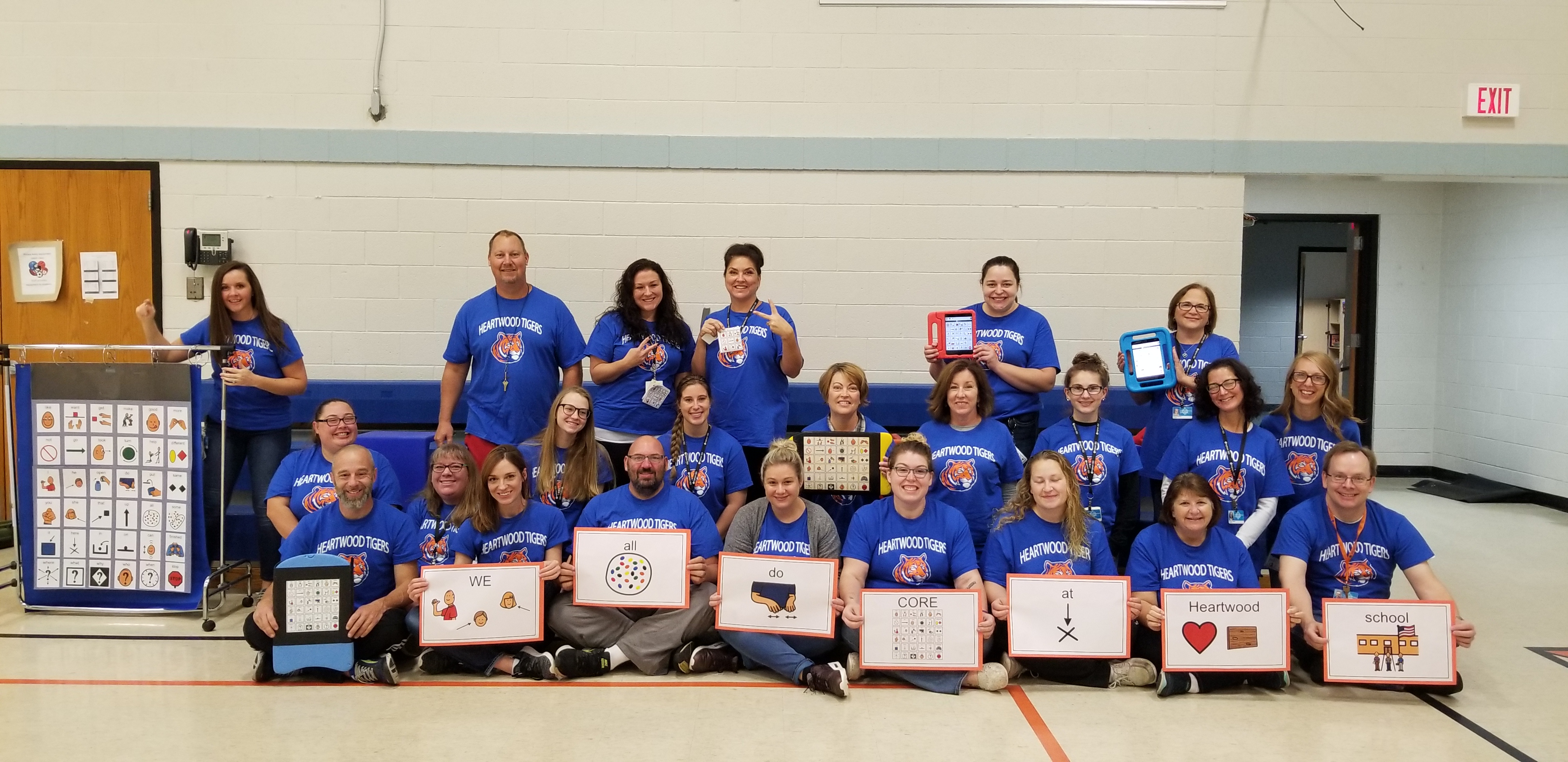
Music Therapy
Music therapy is the professional use of music and its elements as an intervention in medical, educational, and everyday environments with individuals, groups, families, or communities who see to optimize their quality of life and improve their physical, social, communicative, emotional, intellectual, and spiritual health and wellbeing. Research, practice, education, and clinical training in music therapy are based on professional standards to cultural, social, and political contexts" (World Federation of Music Therapy, 2011).
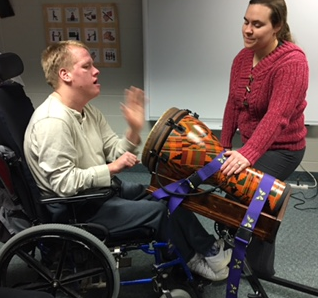
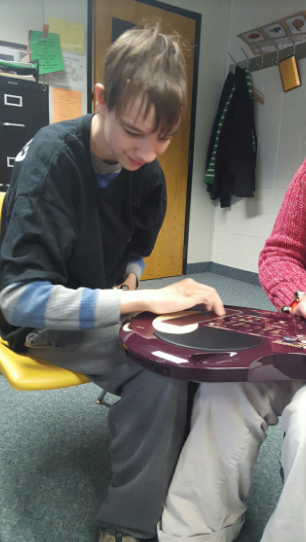
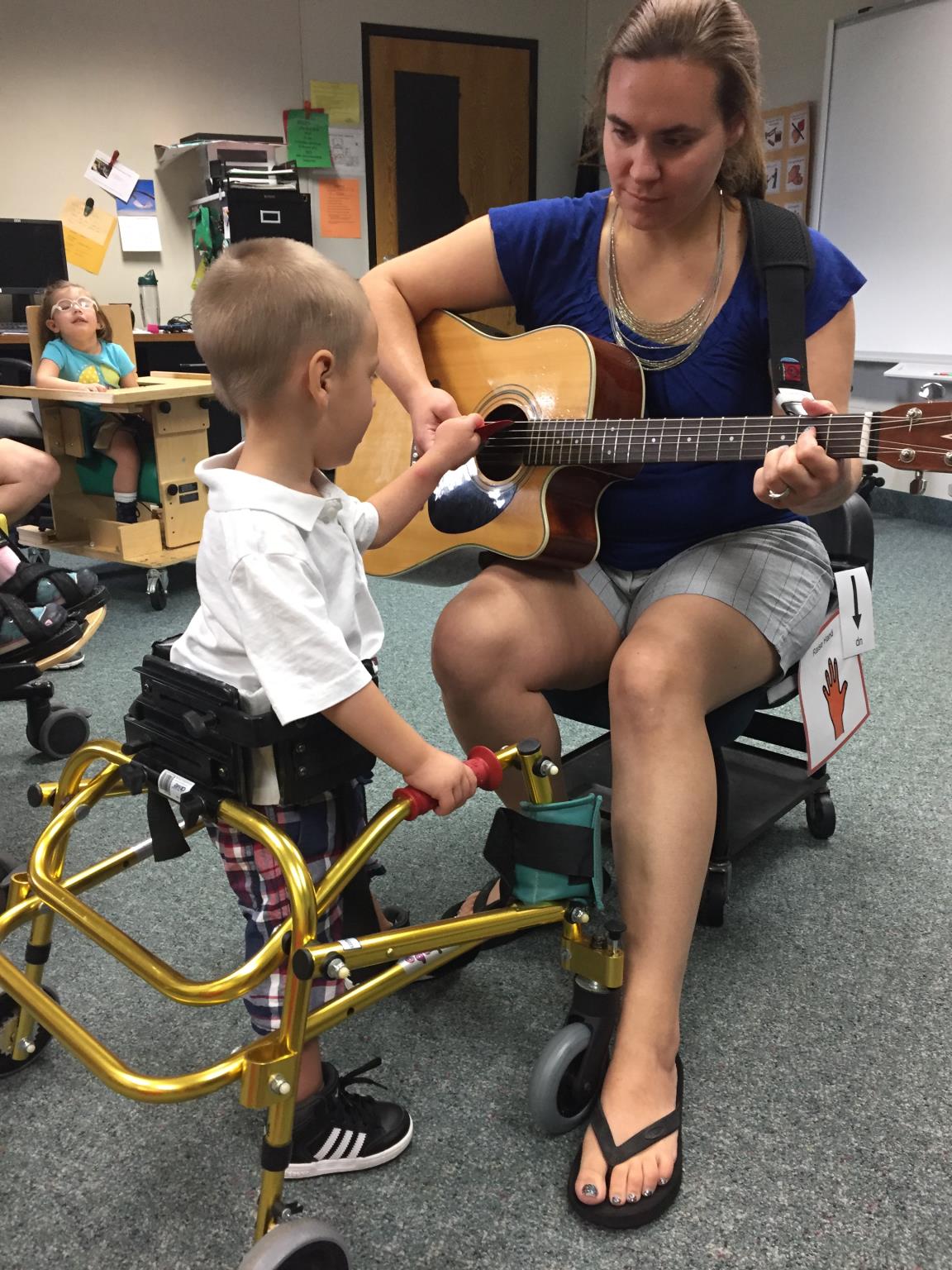
Occupational Therapy
A full time Occupational Therapist and Occupational Therapist Assistant evaluate, consult, monitor and or treat students in the following areas:
- Educational Training
- Sensory Processing Skills
- Accommodations in the Educational Setting
- Components of Movement
- Assistive Technology
- Self-Care Skills
- Adaptation of Equipment
- Pre-Vocational and Vocational Skills
Physical Therapy
A Physical Therapist and Physical Therapist Assistant are highly quaulifed to meet the very unique mobility needs of students at Heartwood School. The school fully encompasses MOVE® and has become a model site in the state of Michigan.
POSITIVE BEHAVIOR SUPPORTS
Heartwood's school wide rules are Be Safe, Be Kind, Be Learning.
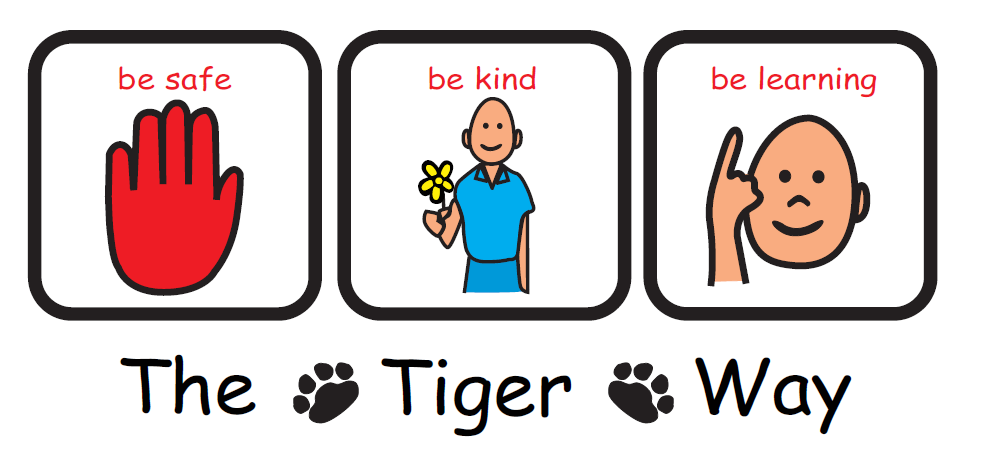
- Visuals in each classroom and in the hallways to continually remind students and staff of these rules.
- Staff can be seen and heard referring to the rules and giving out "tickets" for positive behavior.
- Students save or spend their earned tickets at the Heartwood School Store.
- All Heartwood School classroom have a classroom management plan specific to needs of the students that embrace and provide positive behavior supports throughout each school day.
- Some students may need extra assistance. The Behavior Intervention Team will collaborate with classroom staff and parents to complete a functional behavior assessment and then, if necessary, generate a plan of specific supports and strategies for individuals through a Behavior Intervention Plan.
School Nurse
A full time nurse manages student health needs at Heartwood School. This is a vital service that allows students with significant to minor health needs be able to attend and participate in school. Our nurse is able to to train and educate staff to best meet student needs.

School Psychologist
Heartwood School is served by a school psychologist. Our school's psychologist has the necessary training and expertise to assist parents and teachers in their efforts to maximize student outcomes.
Speech and Language Therapy
Developing functional communication skills is crucial for success in the academic setting, home, and community. Each students communication abilities are unique. Students are encouraged to develop multiple modalities to communicate effectively across their life experiences. Staff use evidence-based principles to promote this communication development.
Augmentative and Alternative Communication (AAC) refers to communication devises, systems, strategies, and tools that can supplement or replace spoken language. These tools support a person who has difficulties communicating using exclusively speech. (See pictures below.)
Aided Language Input (ALD) is a communication strategy which requires a communication partner to teach symbol meaning and model symbolic communication by pairing speech with graphic symbols or other forms of AAC. Staff are encouraged to utilize Aided Language Input while communicating with students to promote growth of language and speech through Core and Fringe Vocabulary. It is an AAC immersion approach!
CORE Vocabulary is a small set of simple words, in any language, that are used frequently and across contexts. CORE makes up about 75% of what adults and children say. Heartwood emphasizes CORE vocabulary to provide more robust communication that translates across age, environments, activities, and communication partners.
FRINGE Vocabulary is a large set of specific words that have concrete meanings. FRINGE makes up about 25% of what adults and children say. The intent of FRINGE Vocabulary is to provide more specificity to language.




